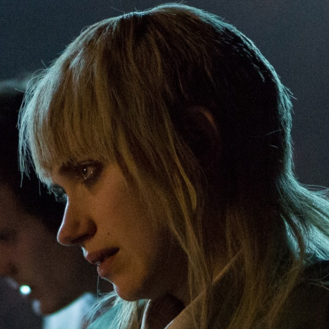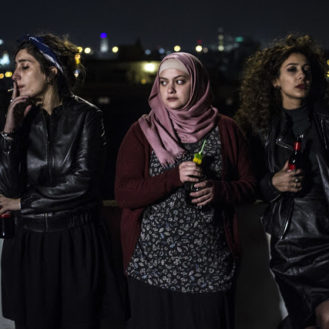“This makes me want to puke. Sorry, this came into my head. Sorry.” These were the words spoken by Robert Eggers, before he made a point about the relationship between Andrej Tarkovsky and Fyodor Dostoevsky. The singular voice behind the instant classic The Witch and The Lighthouse provided evidence of two important parts of his personality: the first being his self-effacing tendencies despite how well-read he is—after all, any great artist is first a great student—and the second being his morbidity, proven by his next statement, “being miserable is hilarious!” In fact, Eggers frequently insists that these two films were just the first two to get greenlit, but he also insists that the ones that didn’t were a result of being too weird. Perhaps even his morbidity has a limit for the audiences?
Eggers’ new film, about the issues that arise when two heteronormative masculine men full of erotic energy are trapped in a giant phallus, premiered at TIFF to rave reviews, my own included, making this interview an absolutely important one. Walking into the room, one couldn’t help but be struck by how normal the voice behind these strange films looks. Of course, it becomes apparent immediately that the sickness does not come from within Eggers’ head but rather from within the world in which he inhabits. “Certainly, history is terrifying because human beings do bad things all the time,” he suggests as to why he makes these historical horror films “and we don’t tend to learn from the past, so it’s nice for me to understand where we are and where we’re going by looking at where we came from.” It just so happens that where he came from was New England, the place of witch burnings and whaling insanity.
What separates Eggers’ works from his contemporaries is the amount of research that has gone into both, and Eggers insists that this research gives his work that otherworldly touch. The Witch demanded actual spoken words from the time as a part of its fabric as “a puritan’s nightmare.” Meanwhile, the research that went into The Lighthouse ended up giving the film its dialects, its sea chanties, and its general humorous yet horrific atmosphere.
That is something that may shock the uninitiated viewer: this film is actually quite funny, owing a lot of it to the extremely well-trained seagull (seagulls, actually, as the infamous seagull is portrayed by three bird-actors, Lady, Tramp and Johnny) who frequently goes head-to-head with Robert Pattinson. Eggers says that he did this intentionally, as a mea culpa for The Witch taking itself so damn seriously—there’s that effacing nature again—before suggesting that he occasionally felt that the great comedic chops of Pattinson and Willem Dafoe were perhaps too funny.
Eggers has wanted to work with these two actors for a while, and so did they. This project finally brought them all together and it seems that their relationship was the light at the end of the tunnel, because while the two formidable actors were a delight to work with—Eggers specifically calls out audiences who question Pattinson’s early credentials with Twilight as not paying attention—the shoot was a bit of a nightmare, with the lack of easy scenes due to the highly choreographed nature of the long takes, the harsh weather conditions—which frequently made the audio unusable, throwing the work of creating sound onto extremely diligent and allegedly very sensitive sound designer Damian Volpe—and the ever-present danger of being dragged out to sea for one latex-clad actor. There was also a lot of difficulty in obtaining materials to give the film its early cinema aesthetics, but the audience will surely agree that it was all worth it.
Ultimately, it would be fair to assume that any horror filmmaker must be working from a place of fear, but Eggers genuinely seems to be working from a place of awe. When asked what the fear behind this film was, he responded that it was not the fear, but rather the atmosphere, finding things that are scary about this atmospheric black-and-white tale of two men stuck in a white house. This awe is present throughout The Lighthouse and also throughout the interview. At one point, he praises mother nature in her ability to always win when she sends a child under a wave in the ocean for the first time. However, his description of a lighthouse he visited for research truly showed his awestruck nature as a filmmaker. When speaking of visiting a lighthouse with a Fresnel lens, he describes it as looking like an “art deco jewel spaceship” and an object that is at once “so romantic and mysterious and hypnotic,” as if it is hiding a secret. He concludes this anecdote, suggesting that he “could have stared at the thing all night, it’s so stunning.” This awesome nature truly translates into Eggers’ work, and goes a long way to explain just why his films are so engrossing.
Robert Eggers is only two films deep into his career and yet he has already found his way into the cinematic canon with ease. Here’s hoping that he has a long career in front of him, which he plans to, as long as “people allow [him] to spend their money.” You heard him, folks!
The Lighthouse is now playing in theatres.
Read Shahbaz Khayambashi’s full-length review here!
**********
Do You Tweet? Follow These Tweeple:
Shahbaz Khayambashi: @Shakhayam







Be the first to comment